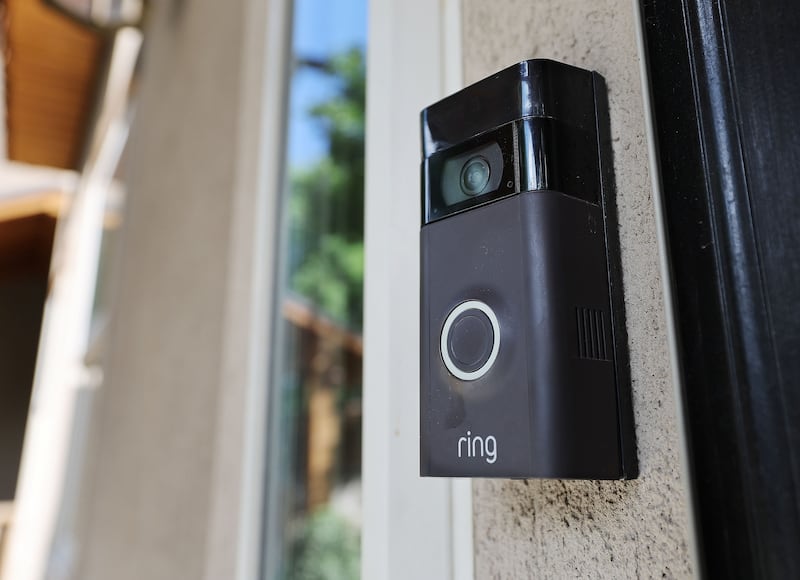Amazon gave Ring video footage to police without owners’ consent at least 11 times so far this year, according to findings in an inquiry from Sen. Edward Markey.
Amazon spokesman, Brian Huseman, responded to Markey, D-Mass., in a letter saying that in those 11 cases, “Ring made a good-faith determination that there was an imminent danger of death or serious physical injury to a person requiring disclosure of information without delay.”
Markey sent a letter in June to Amazon, the parent company of Ring, about ongoing issues of privacy violations and data sharing with police departments. Amazon responded, outlining its policies, in its own letter on July 1, which Markey shared publicly Wednesday.
The investigation’s latest findings show a close relationship between Ring and law enforcement, including an increase of law enforcement engagement on the Ring platform, according to Markey.
“I am particularly concerned that biometric surveillance could become central to the growing web of surveillance systems that Amazon and other powerful tech companies are responsible for,” Markey said.
Ring’s response in a letter to Markey said:
- Ring has provided videos to law enforcement in response to emergency requests, through a process that does not require the consent of the device owner, 11 times this year.
- Ring’s Neighbors Public Safety Service has 2,161 law enforcement agencies on the platform, where participating agencies can request footage from Ring users. Ring’s partnerships with law enforcement have increased more than five times since November 2019.
- Ring did not confirm whether or not it would stop incorporating voice recognition technology in its products. In a previous letter to Markey, Ring did not commit to stop incorporating facial recognition technology in its products.
- Ring did not commit to eliminate Ring doorbell’s default setting that automatically records audio.
According to Politico, Amazon didn’t provide any details about the 11 incidents reported. Amazon’s agreement with police allows officers to ask for Ring doorbell footage for entire neighborhoods. Requests are submitted for a geographic area and Ring owners get notified asking them to upload recordings of specific time periods for police to see. The doorbells activate through motion detection and capture audio from up to 30 feet away, according to a test from Consumer Reports.
Ring has repeatedly said police can’t view recordings unless footage is posted publicly or shared directly with police. Markey’s claims that Ring has shared video without user consent directly contradicts company policy, which claims footage can’t be shared without an owner’s approval.
“As my ongoing investigation into Amazon illustrates, it has become increasingly difficult for the public to move, assemble, and converse in public without being tracked and recorded. We cannot accept this as inevitable in our country,” Markey said.
According to Politico, the letter is likely to increase congressional skepticism of the tech giant. Lawmakers are already raising privacy concerns because of previous facial recognition software issues, like Amazon’s Rekogniton falsely linking 28 members of Congress with criminal mugshots in 2018.
According to Amazon’s letter released Wednesday, Rekognition is not linked to Ring’s software.


